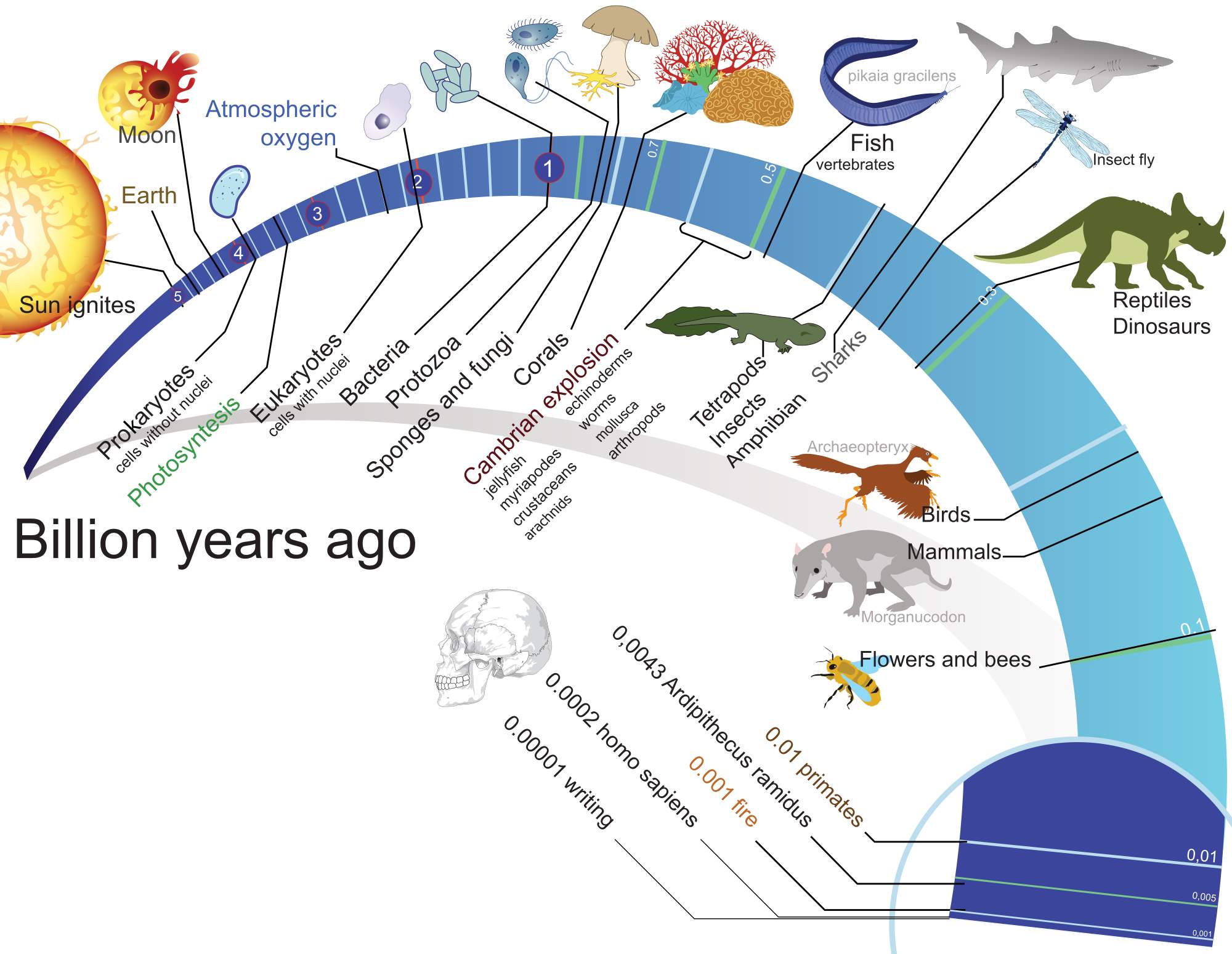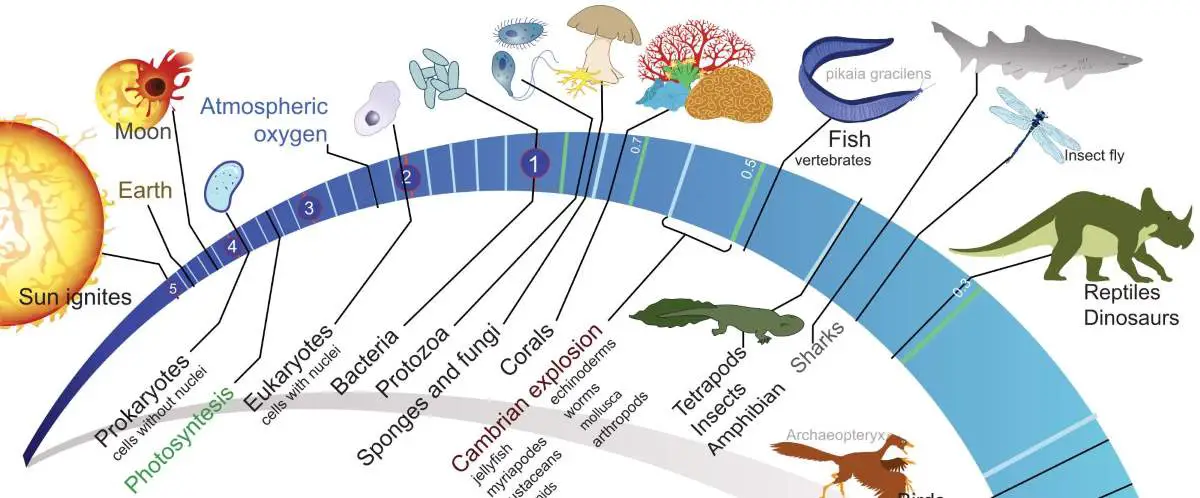I recently saw a question on Quora and it was like that: “Why is it called the ‘theory of evolution’ but the ‘law of gravity’?” This question is strongly related to a common misconception about evolution: “It is just a theory” – creationists always say “Evolution is just a theory”.

Part of the problem is that the word “theory” means something very different in lay language than it does in science. To the average people, a theory is just an idea that lives in someone’s head, rather than an explanation rooted in experiment and testing.
Yes, the Theory of Evolution is a theory, but guess what? When scientists use the word theory, it has a different meaning to everyday use.
A scientific theory is an explanation of some aspect of the natural world that has been substantiated through repeated experiments or testing.
In science, a theory is not a guess, not a hunch. It’s a well-substantiated, well-supported, well-documented explanation for our observations. It ties together all the facts about something, providing an explanation that fits all the observations and can be used to make predictions. In science, the theory is the ultimate goal, the explanation. It’s as close to proven as anything in science can be.
Creationists make it sound as though a ‘theory’ is something you dreamt up after being drunk all night.
Isaac Asimov
Some people think that in science, you have a theory, and once it’s proven, it becomes a law. That’s not how it works. In science, we collect facts or observations, we use laws to describe them, and a theory to explain them. You don’t promote a theory to law by proving it. A theory never becomes a law.
Evolution is not just a theory, it’s triumphantly a theory!
Why you should never say “It’s just a theory”: a portion of our culture distrusts the scientific method, assuming that there are transcendent truths unknowable by science. But nothing is truly out of bounds for science. If it’s real, it can be studied and tested. Perhaps the greatest misunderstanding our culture has about the scientific method involves the definition of the word “theory”. A theory is not a guess, and this word does not in any way imply uncertainty about the validity of a concept or an equation. Watch this and learn more about the terms hypothesis, theory, and law.
Why is it called the “theory of evolution” but the “law of gravity”?
Back to the original question – is evolution just a theory? Sean Lynch of the University of Cincinnati answered this question brilliantly on Quora. See his answer below:
First, let’s deal with gravity:
There is:
- The fact of gravity.
- The theor(y)(ies) of gravity.
- The law(s) of gravity.
Take a ball. Drop it. Watch it fall. You have just observed the fact of gravity. It is an observed phenomenon in nature.
The theories of gravity are Newton’s and Einstein’s theories. These theories explain the observed facts. They both work well. Newton’s theories are enough to get a rocket to the Moon or Mars. In extreme circumstances, like near the speed of light, Newton’s theory does not explain the observed facts, so we use Einstein’s theories.
Newton was not wrong, just not entirely right. When Newton was alive people didn’t observe supermassive objects or particles moving near the speed of light. As these new facts were observed, theories were updated to match the observed facts. That is how science works.
The laws of gravity are mathematical formulas that can be used to express the theories of gravity in a precise mathematical form.
Of the major sciences, it is mainly physics and chemistry that have a lot of mathematical laws. Some of the other sciences have a few of them too, but extremely complicated sciences like biology and medicine have so many interacting variables and factors that contribute to even the most simple theories of those subjects, that math is way beyond what humans can handle, or even envision.
Biology is a lot harder, in terms of mathematics, than simple easy things like rocket science and quantum mechanics.
Evolution is one of those incredibly interdependent, complex, biological theories that are not expressible well as a few simple equations.
So for evolution, we have:
- The fact of evolution.
- The theory of evolution.
The fact of evolution is the observed phenomenon seen in nature and in the laboratory. We have seen animals evolve over time. We have observed evolution in real-time. We have even observed speciation in the world within human history.
The theory of evolution is the theory that explains the observed facts. The original theories of evolution were developed by a divinity student named Charles Darwin, and the naturalist Alfred Russel Wallace. As more evolutionary phenomena (facts) are observed in nature, the theory either already explains them or is updated in accordance with the observed facts. It is updated to match the observed facts because that is how science works.
There is no “Law of evolution” that expresses the theory in a few interconnected equations like we do for gravity or electromagnetism. We have predator/prey equations, and mathematical and chemical equations of other biological processes, but no one set of equations that govern the entirety of evolutionary theory.
So, summing up:
- There is the fact of evolution, and there is the fact of gravity.
- There is the theory of evolution, and there is the theory of gravity.
- There is no “law of evolution” (too complex), but there is a “law of gravity” (rocket science is easy compared to biology).
Sources
- Why is it called the “theory of evolution” but the “law of gravity”? on Quora
- “Just a Theory”: 7 Misused Science Words on Scientific American
- “Evolution is not ‘just a theory'” on notjustatheory.com
- Budget of NASA, Year by Year [1980-1989] - June 10, 2024
- Budget of NASA, Year by Year [1970-1979] - June 10, 2024
- Budget of NASA, Year by Year [1958-2024] - June 10, 2024
